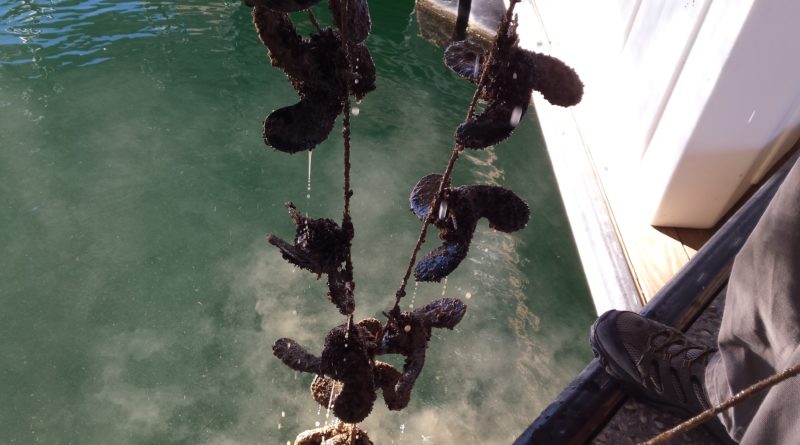State Parks, Coastal Commission offer free seminars on aquatic invasive species
California agencies will host three six-hour long workshops in Northern California, beginning March 19.
SACRAMENTO—Boaters in Northern California will have the opportunity to attend one of three free workshops on aquatic invasive species prevention.
The workshops will be offered in Oakley (March 19), West Sacramento (April 2) and Santa Cruz (May 14). The California Coastal Commission and California State Parks host all workshops.
“Everyone accessing California’s waterways is invited to learn how to prevent the further spread of aquatic invasive species (AIS) into uninfected waterways,” an email flyer advertising the free workshop series stated. “These free workshops will help the public learn how they can recognize AID in their region and how to take action to prevent it from spreading.”
Each workshop, according to the flyer, will educate boaters to the effects of AIS on the environment and how to recognize aquatic invasive species in their region. The workshops will also teach attendees “how to take action and prevent spreading the invasive species by inspecting and cleaning equipment and watercraft.”
The first free workshop will be held at Big Break Regional Shoreline Park in Oakley (Contra Costa County) on March 10. Big Break Regional Shoreline Park is located at 69 Big Break Road in Oakley.
Workshop two will be at Lake Washington Sailing Club in West Sacramento (Yolo County) on April 2. The club is located at 2901 Industrial Boulevard, West Sacramento.
The final workshop in the series will be at Santa Cruz Yacht Club, 244 Fourth Avenue, #3835, Santa Cruz.
All three workshops begin at 8:45 a.m. and continue through 2:45 p.m. Attendees are encouraged to purchase lunch at a nearby restaurant or bring lunch (food will not be provided at the workshops). Free parking is available at each facility.
Also co-hosting the free workshops are the California Department of Fish and Wildlife, U.S. Fish and Wildlife Service, and Smithsonian Environmental Research Center.
Aquatic invasive species can be harmful to an ecosystem, according to CDFW staff.
“The introduction of [aquatic invasive species] can cause harm to the ecosystem by displacing native species, becoming a human health danger by introducing new diseases, or cause economic havoc on commercial, agricultural, or recreational activities by clogging waterways, and impacting navigation and recreation,” CDFW staff stated on a website dedicated to AIS.
Common forms of aquatic species in California include Asian kelp, Chinese mitten crab, clubbed tunicate and green crab.
Aquaculture farms, ballast water, fisheries, oysters and vessel biofueling are the common pathways to aquatic invasive species.
The Log reached out to the Coastal Commission to inquire whether free workshops on aquatic invasive species prevention would be offered to Southern California boaters. Coastal Commission staff has not yet replied to The Log’s requests.
Contact Karen Bigham at CDFW for more information about aquatic invasive species in California. She can be reached at karen.bigham@wildlife.ca.gov or 916-445-4562.


